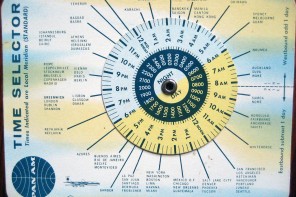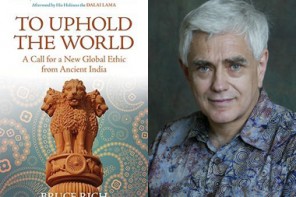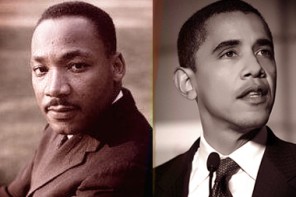In the midst of the madness at the end of 2008—almost unnoted in a time of deep economic crisis, violence in the Middle East, and the expectations of a new presidential administration—one of America’s most influential scholars left the scene. Harvard political scientist Samuel Huntington, best known for coining the phrase, “the clash of civilizations,” died on Christmas eve at 81 after a long illness.
It was easy to be critical of Huntington’s views. The way he carved the global political landscape into competing civilizational factions seemed to many to be naïve. Others thought it dangerous; an article in the New York Times raised the question of whether the use of the phrase “clash of civilizations” had become a self-fulfilling prophecy. His ideas about the threat of new immigrants to American culture seemed more than a bit bizarre—verging on racist.
Yet surrounded by all of this criticism, Huntington was implacable. I remember on one occasion (a luncheon meeting of the advisory committee for Huntington’s project on religion and world politics) finding that virtually none of the scholars there agreed with Huntington—either on immigration or the clash of civilizations. When I mentioned this to Sam, that his own advisory committee was skeptical about his most famous views, he simply chuckled and shrugged. His self-assured smile seemed to indicate that history would be his final judge, and it would be positive.
Whether or not Huntington will be acquitted in the future and regarded as a prophet, there is no question that he was influential in his own time. Long before the “clash of civilizations” thesis, Huntington was famous for bringing issues of culture and values into political analysis. In the 1960s, his book Political Order in Changing Societies argued that social stability and political order was essential for economic and political development. His 1991 book on democratization, The Third Wave, foresaw the wave of new democratic movements that accompanied the end of the Cold War.
In the early 1990s, observers of global politics searched for ways of understanding the new world disorder in the wake of the Cold War and the rise of globalization. Frances Fukuyama proclaimed an “end of history.” Benjamin Barber saw the centrifugal tendencies of a globalized “McWorld” in conflict with the centripetal tribal forces that he linked with the term “jihad.” Some scholars of religious studies, such as Martin Marty, observed the rise of a strident new religious politics and linked the phenomenon with a global tide of “fundamentalism.” Others at that time, including myself, focused on the rejection of Enlightenment ideas of secularism in the formation of new religious nationalisms.
In a watershed article in Foreign Affairs published in 1993, Huntington raised the question of whether these religious and political movements were harbingers of a new kind of global politics, a “clash of civilizations.” Many were quick to point out the limitations of this way of thinking: that it falsely assumed that all adherents of particular religious traditions thought in the same way and had common political allegiances. At the same time, it seized the public imagination in a powerful way. The article was immediately published in full in the New York Times and an expanded version was published within two years as a book.
Huntington’s “clash of civilization” idea became popular not just in the United States and to a lesser extent in Europe, but also—perhaps surprisingly—in non-Western parts of the world. In China, scores of books were published about what they called “the Huntington thesis,” which impressed the Chinese in part because it gave their own culture a prominent place in world politics. In the Middle East, “the clash of civilization” thesis was regarded as common sense by Islamic radicals whose own outlook on world politics was surprisingly similar to Huntington’s. For a time I joked that the world’s only true believers in the “clash of civilization” were Sam Huntington, George Bush, and Osama bin Laden.
Yet Huntington was on to something. I think what excited the minds of many about Huntington’s way of thinking was not so much his simplistic geographic representation of cultural traditions, but two other stretches of imagination. One was his conviction that the things that we think of as religion—the cultural repositories of ideas, customs, and traditional figures—were central to the way that peoples’ social order and political authority is expressed, thereby countering centuries of Western intellectual assumptions that religion was separate from public life. The other important aspect of Huntington’s thinking was its planetary reach—he saw politics in a globalized world as being intertwined on a global scale. Both of these ways of thinking about religion and culture in a global world are, I think, correct.
So what do we make of Sam Huntington, now that he is gone? Perhaps nothing will deter us from our conviction that Huntington was off base in the way he described the new global order, even dangerously so, in that his conception of a clash of civilizations helped to support the neo-conservative notion of a War on Terror. Though he was a lifelong Democrat and was opposed to the Iraq war, Huntington’s thesis, along with the ideas of Leo Strauss, was part of the intellectual framework of the disastrous foreign policy of George W. Bush. Though his way of thinking about the interaction of religion and politics on a worldwide basis helped to pave the way to our understanding of cultural politics in a globalized, post-secular age, it is a pity that he got so much of it wrong.




